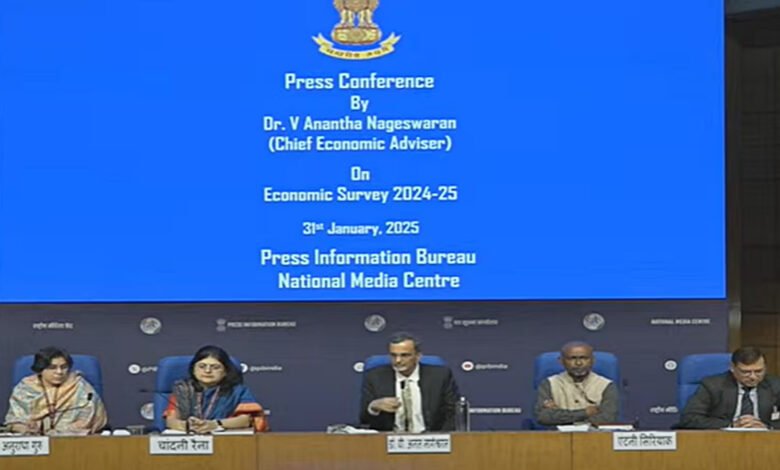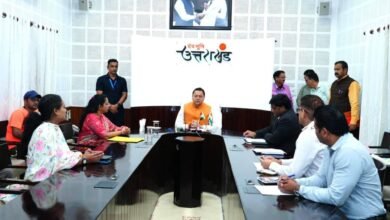
New Delhi, Jan 31:The Economic Survey 2024-25 sets a bold agenda for India’s economic growth, highlighting key strategies to counter global uncertainties and boost domestic resilience. As the world grapples with economic slowdowns, high inflation, and shifting trade patterns, India aims to strengthen its internal economic engines through deregulation, technological advancements, and energy security policies.
Deregulation and Ease of Doing Business
A major focus of the Economic Survey is reducing business costs through simplified regulations and policy reforms. The government plans to streamline bureaucratic processes, making it easier for industries to grow without excessive regulatory burdens. This move is expected to attract foreign investments, boost local entrepreneurship, and enhance industrial productivity.
The Survey also points out that India’s current business environment needs further optimization to compete with global markets. By cutting red tape and incentivizing investments in key industries, India can position itself as a leading global economic player.
Strengthening Manufacturing and Supply Chains
With China’s economic slowdown impacting global trade, India sees an opportunity to expand its domestic manufacturing capabilities. The Economic Survey stresses the importance of self-reliance in sectors like solar energy, electric vehicles (EVs), and semiconductor production.
The government is particularly focused on reducing dependency on imported EV components, as India’s electric vehicle sector heavily relies on Chinese imports. Instead of providing direct incentives for private EV ownership, the government is shifting its focus towards enhancing public transportation systems, which are more sustainable and cost-effective.
AI, Skill Development, and the Workforce
Technology and innovation remain at the core of India’s growth strategy. The government aims to invest in Artificial Intelligence (AI), research centers, and digital infrastructure to strengthen India’s position in the global tech landscape. However, the Survey warns against over-reliance on AI, as it may lead to job displacement and excessive resource consumption.
To counterbalance this, India is prioritizing skill development programs to equip its workforce with future-ready capabilities. The focus is on enhancing digital literacy, automation skills, and AI integration in traditional industries, ensuring that technological progress does not come at the cost of employment.
Energy Security and Climate Transition
Energy security remains a top concern, with the Survey emphasizing the need for a balanced approach to climate policies and economic growth. The government aims to reduce its reliance on imported fossil fuels while gradually transitioning towards renewable energy sources.
India is also exploring ways to secure its supply of critical minerals, which are essential for clean energy technologies. The strategy is to develop domestic resources while maintaining affordable energy access for industries and consumers.
Women’s Workforce Participation and Agriculture Reforms
The Economic Survey highlights the importance of women’s workforce participation, suggesting policy measures to increase female employment opportunities. Additionally, it underscores the need for agriculture reforms, promoting modern techniques to improve productivity and farmer incomes.
A Vision for Economic Resilience
With these strategic shifts, India aims to emerge as a self-reliant, globally competitive economy. By fostering deregulation, technological growth, and energy security, the country is preparing to navigate global uncertainties while ensuring sustainable, long-term growth.



